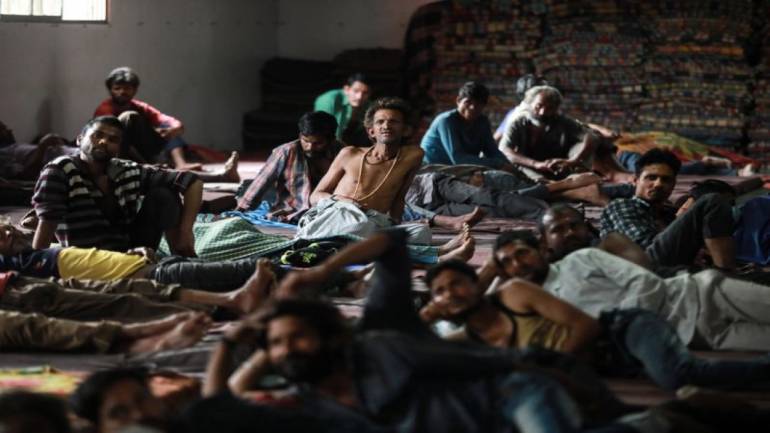

By Linus Garg
First publised on 2020-04-30 07:37:21
While some relaxation in the lockdown was on the cards after May 3 as 40 days would have already passed since it was first imposed, the decision to relax lockdown rules to permit inter-state travel for stranded people was perhaps forced by a combination of factors. The first was the feeling of distress and unrest among the huge community of migrant workers, especially from UP and Bihar, stranded in Maharashtra. Within 24 hours of opening the helplines for workers stranded in that state, the UP government received a staggering one lakh calls.
The second reason was the fear that if people were prevented from going back now, there might be scenes like the ones witnessed in Delhi immediately after the lockdown was imposed or when fake news saw thousand descend on Bandra station in Mumbai in the hope of catching a train back home. The government was apprehensive that this time things might go out of hand. The third reason was the increasing feedback from the ground that the migrant workers were actually showing signs of huge distress despite the many measures taken to alleviate their suffering.
The real purpose of the lockdown was not to treat Covid-19 but to arrest its spread through the movement of infected people. All the other actions to combat the pandemic, like isolation, tracing, testing, quarantine and treatment have been facilitated with relative ease only because people are not moving about. In that respect, for a densely-populated country like India, the lockdown has been a huge success. It has prevented India from going into the community transmission stage as of now. But 40 days is a long time for people workers (as also students, tourists and pilgrims, among others) stranded without work away from home.
With that purpose largely achieved, and with normal inter-state travel still banned (and likely to remain so for another month, at least) the government needed to chalk out an evacuation plan for these stranded persons. The decision to ask receiving states to provide buses for the purpose is laudable. It remains to be seen whether the process is carried out without the usual bungling. There is a risk of asymptomatic carriers taking the virus to their hometowns but with proper isolation and quarantine rules, that risk can be mitigated to a large extent. In any case, there is now no justification in keeping people stranded, especially when signs of imminent revolt are becoming visible and when some states are already evacuating workers from some states (like UP is from Haryana and Delhi) on a smaller scale.











